In 2006, artists Bie Venter and Maria Svane dreamed of creating a space where artists could both live and work. They bought August House, a five-storey building at 76 End Street, Doornfontein, and invited their friends and colleagues to move in, establishing a unique enclave for artists. At the time only one other studio space existed in the city – the Bag Factory in Fordsburg, founded in 1991 – and, while legendary, it was not a live-in studio space. "Being so enmeshed in a community kickstarted a magical time of sharing and growing," reflects Sara Hallatt, the director of META Foundation.
Venter and Svane decided to sell the building in 2013. Gratefully, by 2016 it was taken over by an art lover who wanted to ensure the continued existence of August House. New ownership brought with it the creation of more private studio spaces for up-and-coming artists. Today, August House is home to over 40 contemporary African artists (Jul 2024).
August House is wonderfully diverse; the resident artists span age, nationality, and levels of experience, and work across a wide range of mediums. This makes for a dynamic community. "August House has become a well-known studio space on the national landscape and is a big part of the city of Johannesburg," Hallatt says.
"A well-known studio space like August House offers numerous benefits for artists." – Sara Hallatt, META Foundation director.
Keep reading for some of the history behind August House, how artists' studios contribute to Joburg's creative economy, and why it's a generative environment for artists. For artists interested in renting a studio at August House or for people keen to visit the resident artists in studio, the details are below.
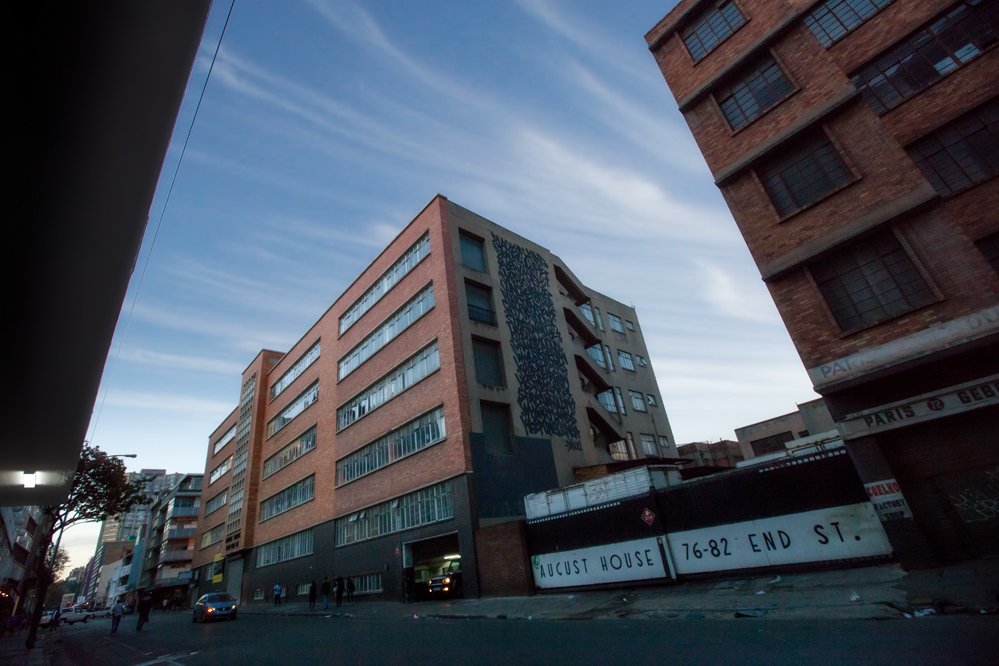
The house at the city's end
Legend has it August House was completed in August of 1940 – hence the name. It began its life as a light industrial building. "End Street is so-called because it was literally the last street in the Johannesburg CBD – it was the end of Johannesburg," Hallatt tells us. "Originally, it was filled with mansions built by millionaires. As the city expanded, this section of the CBD was converted into a manufacturing district." It used to house a variety of tenants working across multiple industries and, in addition to artists, still houses tenants in the cut, make, and trim businesses, as well as a framer, two pottery businesses, and a large cross-border moving company.Art Deco build
The building itself is comprised of two buildings, one a little older than the other. What’s now referred to as the "north tower" of August House is the entrance used by visitors, while the plot of land that the "south tower" is now located on was purchased after the first building was constructed. Sweeping staircases, Art Deco pillars, high ceilings, and large windows letting in plenty of natural light characterise the architecture.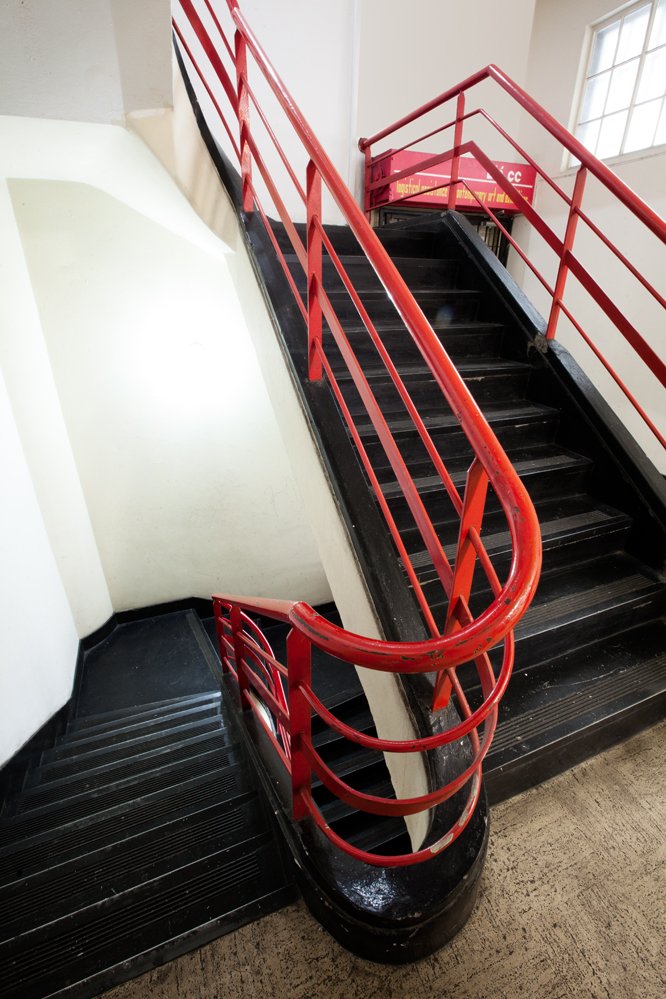
Trailblazing alumni
"The building has had a string of prominent artists in its space," says Hallatt. One of these is Mary Sibande, an award-winning Barberton-born sculptor, photographer, visual artist, and co-creator of the Occupying the Gallery initiative. Her alter-ego, Sophie, is a recurring figure in her work, speaking to femininity, blackness, labour, post-coloniality, and communities on the margin. Sibande has the Standard Bank Young Artist Award for Visual Arts (2013), the Smithsonian National Museum of African Arts Award (2017), and the Helgaard Steyn Prize for Sculpture (2021) under her belt.Rural KwaZulu-Natal-born Mbongeni Buthelezi (read our #MyJoburg interview with him here) also spent time honing his practice at August House; a phenomenal artist who turns trash into treasure, burning plastic to create large-scale pieces. “What I saw from Joburg was a space with limitless boundaries and opportunities,” Buthelezi says. His ingenious use of reclaimed materials has seen him working with Jozi My Jozi and Standard Bank to clean up the streets of Joburg’s City Centre. His works have been exhibited worldwide, including at the Museum of African art in New York and the Goch Museum in Germany, and form part of international collections.
Experimental multimedia artist and Future Generation Art Prize winner (2017) Dineo Seshee Bopape; Absa L'Atelier Gerard Sekoto Prize winner (2015) Lawrence Lemaoana, known for his satirical work; South African artist-curator Gordon Froud, founder of Melville’s innovative Stokvel Gallery; and multi-disciplinary artist Kudzanai Chiurai, winner of the FNB Art Prize (2012), have all been August House residents, and the list of talents is ever-growing.
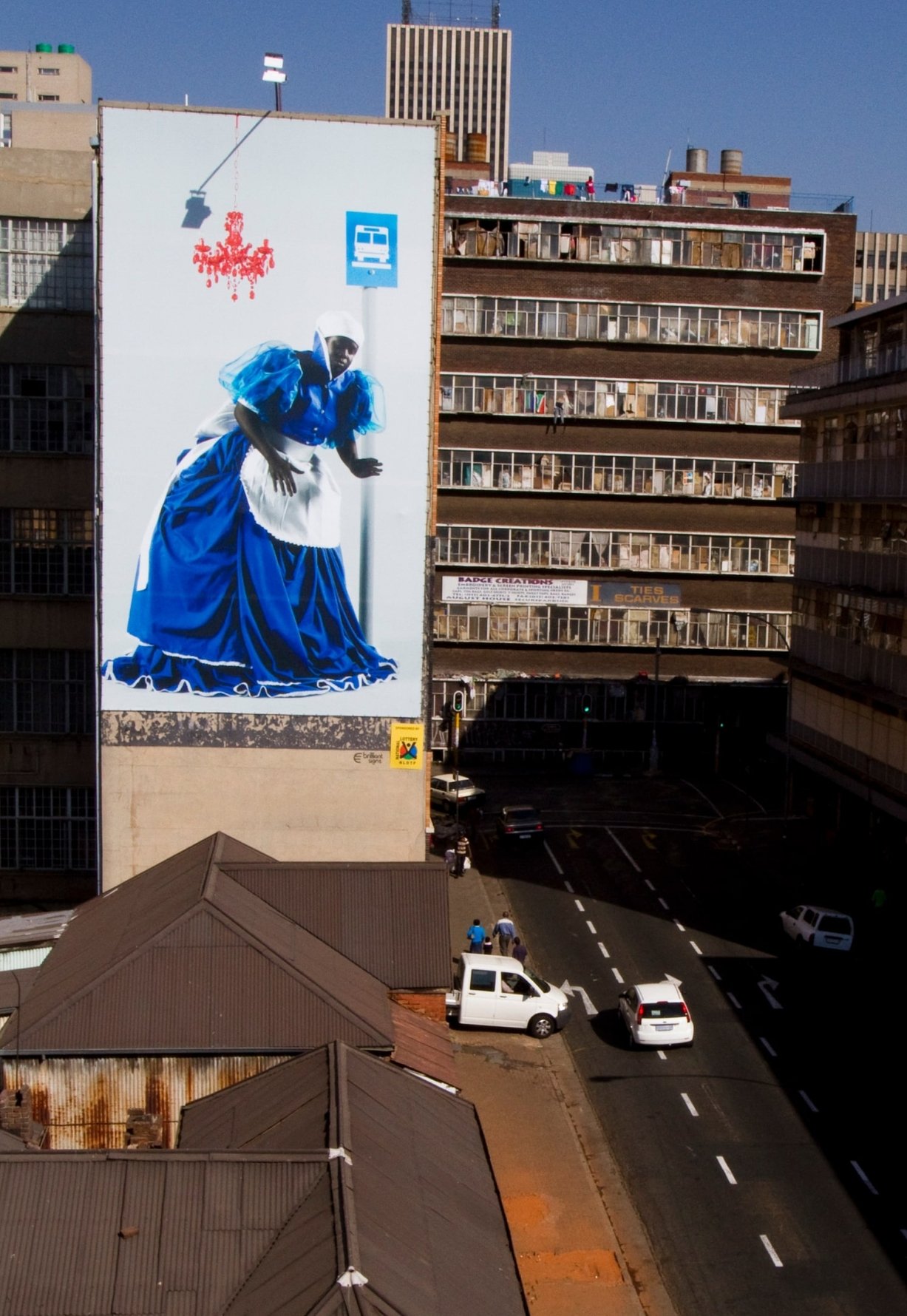
A generative space
The META Foundation programmes for the artists of August House, raising funds to run a variety of happenings. Not least of these is Joburg’s largest open studios event in the City Centre, Contra.Joburg. This year (May 2024) saw 13 artists' studios open their doors to the public over two days, giving people the chance to meet and engage with close to 200 working artists in their natural habitat.The foundation also hosts exhibitions, artist walkabouts, workshops, crit sessions, residency programmes, and awards. It was founded in 2020 with the understanding that artists need more than a studio to develop their careers, but need to operate within an integrated visual arts ecosystem. "The META Foundation makes August House more than just a physical space," Hallatt says.
A recent walkabout at the artists' studio (Jun 2024) centred on a body of work created by Lindo Zwane during his residency with August House in 2019, heroing the working women of the nearby Kwa Mai Mai market. "Initially it was a good move for my career as a young artist to share a building with artists I looked up to, and other artists who were just starting out in the art world," Zwane says of having his studio at August House. "Over the years I have learned to appreciate the location because of the surrounding spaces and the people occupying these spaces. I draw my inspiration from interacting with them, and just observing and learning from them."
"Being part of a vibrant artistic community contributes to the cultural landscape of the city, creating opportunities for artists to be part of larger cultural conversations and projects." – Sara Hallatt, META Foundation director.
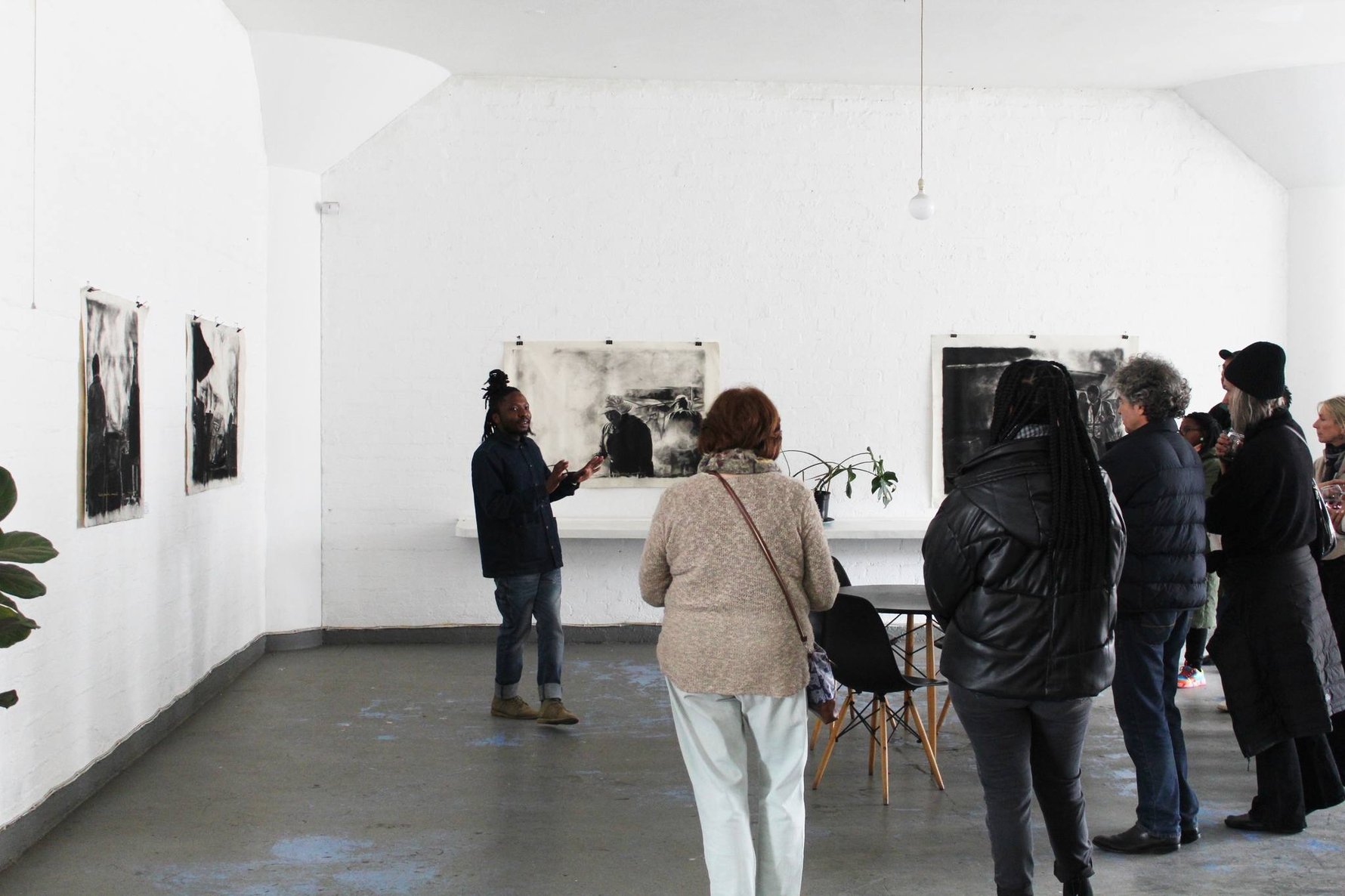
Connecting artists
"Being part of a well-known studio space like August House offers numerous benefits for artists," Hallatt explains. "Firstly, we are a close-knit community of artists and creatives who care for each other. Exposure to different styles and mediums can spark new ideas and approaches while sharing a space with other talented artists fosters a collaborative environment." Instead of working in isolation, artists are able to share ideas, techniques, and feedback with one another. "Being located in one large building also means that artists are easy to find for other professionals in the art world, including curators, gallery owners, and collectors," Hallatt continues. "This can lead to exhibition opportunities, commissions, and sales."Meanwhile, more experienced artists can offer guidance and mentorship to emerging artists. Workshops, crit sessions, and talks held by META Foundation provide valuable skills and knowledge. "Being part of a vibrant artistic community contributes to the cultural landscape of the city, creating opportunities for artists to be part of larger cultural conversations and projects," says Hallatt.
Shared resources
August House makes it easier for artists to have a dedicated workspace by providing affordable studio spaces. "This can be especially important for artists who need space for large projects or specific equipment," says Hallatt. The community environment means that artists can share resources like tools, equipment, and common areas, reducing costs and increasing efficiency.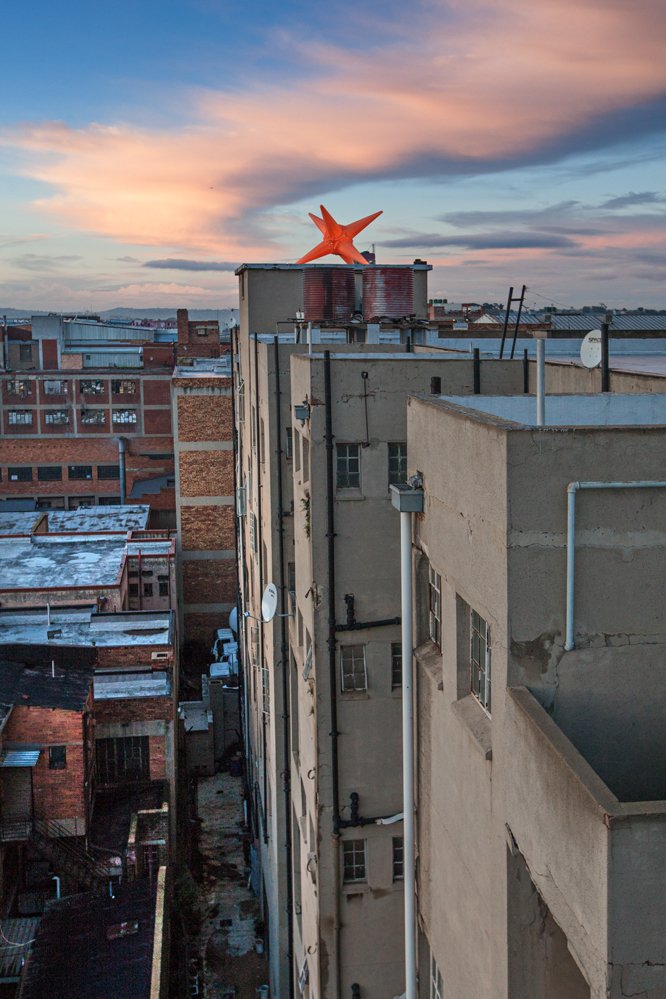
Growing Joburg's creative economy
When we interviewed Hallatt for our #MyJoburg series she said emphatically, "Artists are the backbone of the economy in the City Centre. Not only do they work in a plethora of buildings that otherwise might be neglected, but they also develop a business economy around themselves through the service providers they hire. They bring energy into the city and literally leave their mark in the form of public artworks. The creative economy contributes to our GDP and to our souls. We must not forget how important the consumption of culture is to the psyche of human beings."By having studios in the City Centre, often occupying and transforming underutilised or even derelict spaces, artists contribute to the revitalisation of urban areas. Neighbourhoods are injected with fresh energy, and surrounding properties increase in value. Open studio events like Contra.Joburg as well as exhibitions and cultural festivals draw visitors to areas they might not otherwise frequent.
"Artist studios contribute to the cultural vibrancy of Johannesburg, making the City Centre a hub of artistic activity and a destination for cultural tourism," Hallatt tells us. "This helps to enhance the city’s cultural identity and global reputation. Artists in the City Centre have greater opportunities to interact with the public, raising awareness about the arts and encouraging broader community participation in cultural activities. In addition to that, centralised artist studios attract a diverse group of artists, reflecting the rich cultural diversity of Johannesburg. This diversity is crucial for a dynamic and inclusive cultural landscape."
"Artists are the backbone of the economy in the City Centre." – Sara Hallatt, META Foundation director.
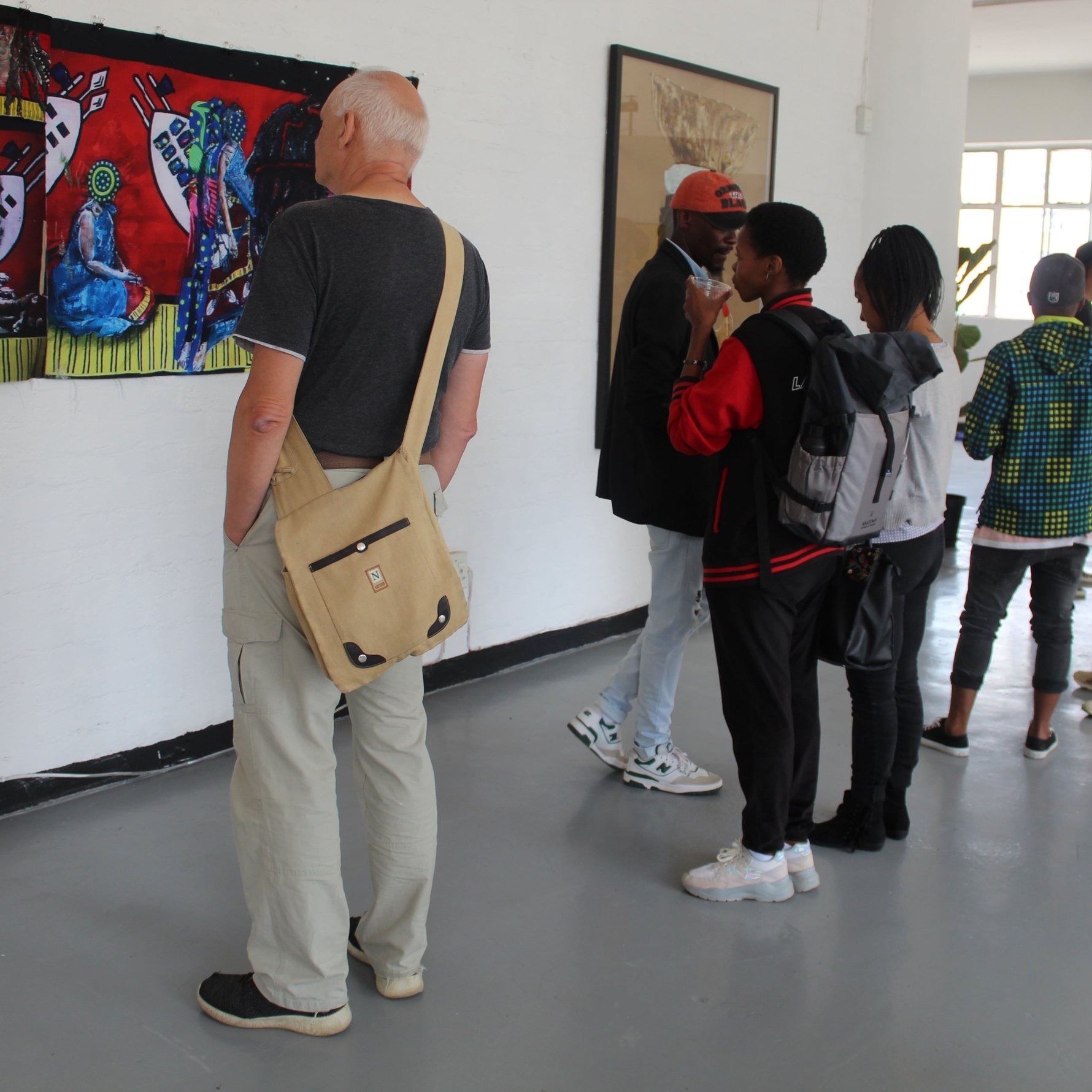
Become an artist-in-residence
August House has a wide variety of studio spaces that come in different shapes and sizes, ranging in price from R1600 – R10,000, with a 42sqm space costing R2700 (Jul 2024). Some of the studios for rent double as apartments, with their own kitchens, bathrooms, and workspaces. The building has safe underground parking and uncapped internet throughout."Being part of a well-known studio space like August House provides artists with a supportive and dynamic environment, practical resources, and numerous opportunities for professional growth and development," Hallatt says, for the benefit of those wanting to join this community.
A number of studio and live-in spaces are available for immediate occupation at August House; email 76@augusthouse.co.za or message @august_house76 on Instagram or @augusthouse76 on Facebook for more details.
Visit August House
The spaces at August House are open Mon – Fri from 08:30 – 16:30. Walk-ins are allowed, but it's recommended that you make a prior appointment with the particular artist(s) you're interested in visiting or through META Foundation (email sara@meta-foundation.co.za) to avoid disappointment.Guided studio tours are offered for groups of four – 12 people, giving you first-hand insight into the resident artists' techniques, styles, and motivations. Tickets cost R250 p.p., with kids under 18 entering free. Make a booking here.


_m.jpg)
_m.jpg)
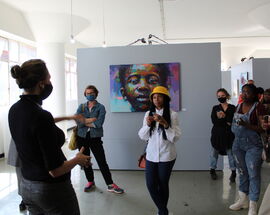


Comments